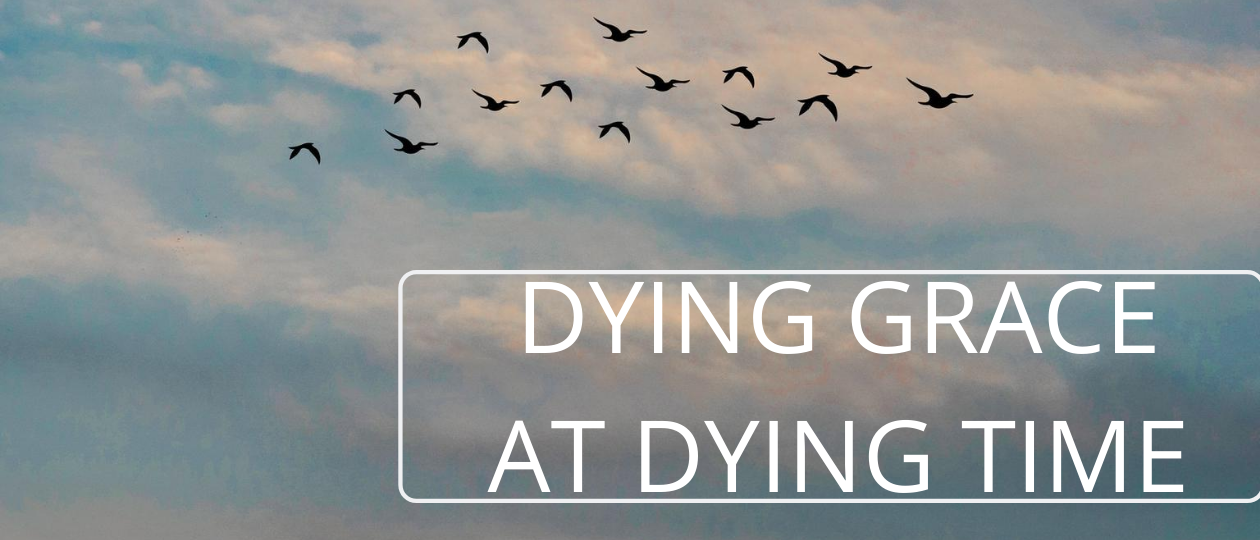Dying grace at dying time
The title of today’s post comes from a friend of mine, a professor at a prestigious university in California. Now, this guy was one of those “everybody’s favorite professor” types. He had a real passion for his material, made it fun and interesting, and was always caring and available to his students. One day, he goes into the doctor because he hasn’t been feeling well and finds out he has last-stage cancer. Not only is it probably going to kill him, but it will be very painful while it does so. So what does he do? He decides to carry right on with his teaching for as long as he’s physically able, even while he’s in excruciating pain every day.
Not only that, but his students notice that even through all of that, he seems no less passionate and energetic than when he was healthy! Eventually, one of them visited his office to ask how on earth he does it. How can he be in agony every day and still be so kind and so productive? The professor smiled and said five words to him: “Dying grace at dying time.”
Today, I’d like to break down what he meant by that. In the past couple of months, I’ve talked a lot about the path of fear vs the path of love. I believe that the professor was referring to a choice you have when you’re confronted with pain. This could be pain of any kind, not necessarily physical. If you’re already on the path of fear, you’ll tend to curl up and try to weather the storm, just surviving and little else—which is not at all what the professor did.
On the other hand, if you’re already on the path of love, you can choose as he did. You can continue your commitment to living in love, and in doing so you’ll find the power to deal with your present pain. That’s not to say it will be easy or that you won’t still be in pain, but you’ll be making the best of it that you can. Partially, that’s because you can continue to live this way rather than merely survive, still enjoying peace and love and joy, even in the midst of your hardship. But also, it means you’ll tend to make better choices.
In every person’s life, there are usually a few mistakes that are worse than the others. Mistakes that you can’t take back, and that you can’t entirely make up for or heal from. Of course, I believe there’s always room to turn your life around and make something good from it, but that doesn’t mean that certain consequences can’t follow you. In my experience, these sorts of mistakes are nearly always made as a result of fear during a period of pain. Fight, flight, or freeze is probably our single most basic instinct, and when you react to something in fear, things like your emotional intelligence, judgement, and empathy are turned way down. But stay on the path of love and not only do you keep your head clear, you remain open to learning from your hardships.
This principle isn’t limited to dying or even to health. You could just as easily think of “marriage grace at marriage time,” or “career grace at career time.” Just don’t neglect the “time” part of that phrase, because it’s important. You get the power to deal with hardships when you come to them, not before. You have to take that first step in faith. So this week, I challenge you to take a look at the hardships in your life and how you’re reacting to them. Are you fixated on relieving pain, or are you still able to find love and peace in your daily life? Take the time to be deliberate in how you react to that pain, and in looking for the strength to live well in the present moment.
Have a blessed, wonderful day!
Alex Loyd




Add a Comment